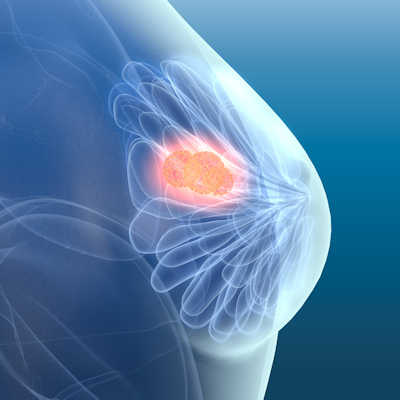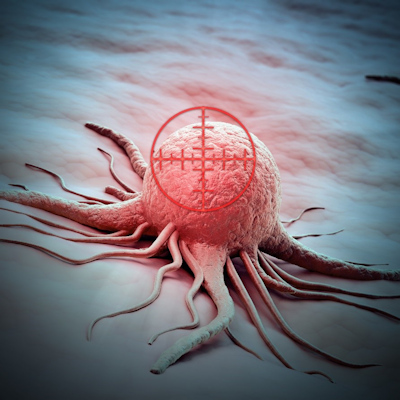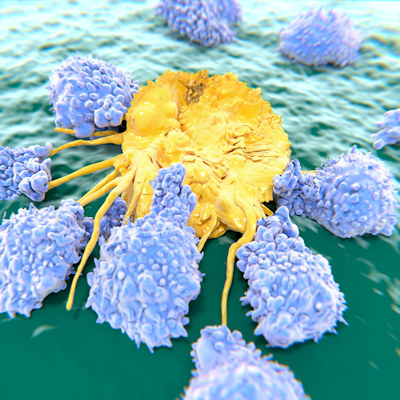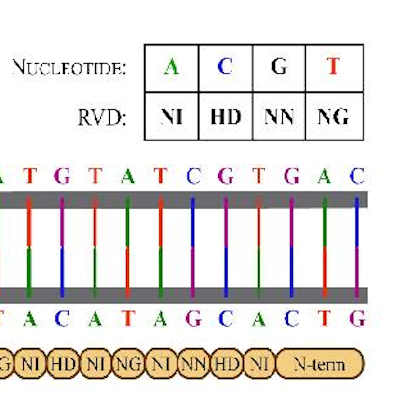November 14, 2022 -- Researchers at the University of Texas MD Anderson Cancer Center have developed a nanotechnology platform that changes the immune system's perception of solid tumor cells, making them more receptive to immunotherapy.
Their study, published November 10 in the journal Nature Nanotechnology, details the platform's use in artificially attaching activation molecules to tumor cell surfaces, triggering immune responses both in vivo and in vitro.
Immunotherapy can work well for blood cancers but has less success on solid tumors. The signaling lymphocytic activation molecule family member 7 (SLAMF7) receptor is critical in activating the body's immune cells against cancer cells via an "eat me" signal. This receptor is found on blood cancer cell surfaces but not on solid tumor cells, making it a target for the researchers' immune conversion approach.
To promote SLAMF7 expression on solid tumor cells, the researchers developed their bispecific tumor-transforming nanoconjugate (BiTN) platform. One molecule on this nanosystem binds to the targeted tumor cell surface; a second molecule activates an immune response.
The research team used BiTN with SLAMF7 and a HER2-recognizing antibody to target HER2-positive breast cancer cells. The nanoconjugate successfully attached SLAMF7 to the breast cancer cells, resulting in phagocytosis, or ingestion, by immune cells. The approach also sensitized breast cancer cells to an anti-CD47 antibody treatment, which blocks "don't eat me" signals from tumor cells, further increasing solid tumor response. This adaptable immune conversion approach may have broad applications across many cancers.
"If we are able to translate and validate this approach in the clinic, it may enable us to get closer to the maximum level of activity from immunotherapy drugs with cancers that have not traditionally responded well," co-author Dr. Wen Jiang, PhD, assistant professor of radiation oncology at the MD Anderson Cancer Center, said in a statement.
Copyright © 2022 scienceboard.net











